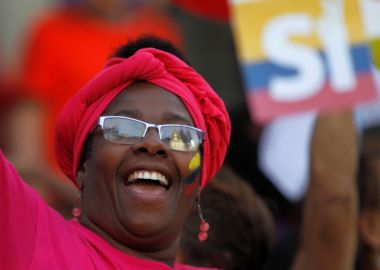Colombia: Churches celebrate ceasefire after 50-year civil war
Churches are celebrating following the declaration of a ceasefire in Colombia, ending five decades of civil war.

A peace agreement was signed between the government of Colombia and the Revolutionary Armed Forces of Colombia (FARC), the country's largest illegal armed group.
"This represents an important step forward in bringing an end to a conflict that has left millions of victims over more than half a century of conflict," said Mervyn Thomas, chief executive of religious freedom charity Christian Solidarity Worldwide (CSW).
The civil war in Colombia is the longest running in the Western hemisphere and has left around 220,000 people dead and millions displaced.
There have been human rights infringements by all sides during the war, according to CSW, including the violation of religious freedom. Hundreds of church leaders have been targeted and assassinated since 2000.
The peace agreement has built in a reconciliation process that pledges to bring clarity to the thousands of open cases of murder and disappearance.
Churches and faith-based organisations affiliated with the Inter-Ecclesial Dialogue for Peace are holding simultaneous liturgical celebrations across the country today.
The President of Colombia, Juan Manuel Santos, called it a "historic day".
"We have reached the end of 50 years of death, attacks and pain. This is the end of the armed conflict with the FARC," he said.
While FARC has been the main actor against the government of Colombia, there have been other insurgent groups involved in the internal conflict, including guerrilla group the National Liberation Army (ELN) and far right neo-paramilitary groups.
CSW, alongside other partner organisations, is calling on the Colombian government "to also pursue effective policies to address the other actors in the conflict, including the ELN and neo-paramilitary groups, both of which are responsible for ongoing human rights violations, including violations of freedom of religion or belief," said Thomas.











